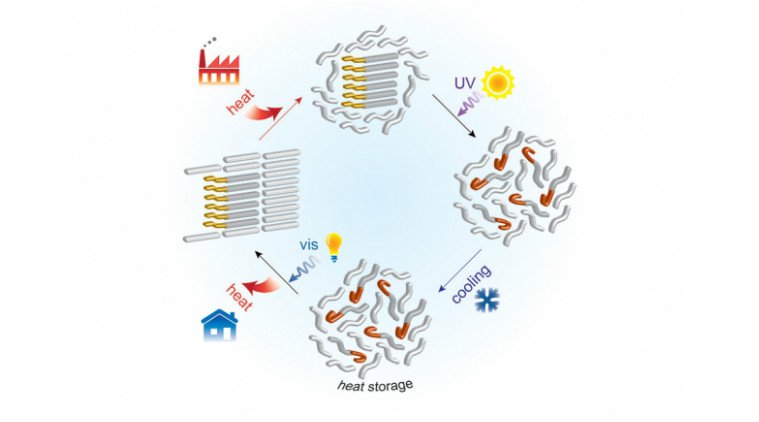Thermal battery
- Thermal battery use thermal energy to operate i.e. energy created by temperature differences.
- The energy transfer in this battery helps to store heat when heat travels from one part of battery setup to other.
- For this transmission, thermal battery consists of two parts viz. cool zone (sink) and hot source (source.)
- Both these sides consist of compounds known as phase-changing materials (PCMs), which can change their state of matter on basis of physical and chemical reaction.
- When sink of thermal battery receives heat, it transforms physically or chemically, thereby storing energy, while source cools down.
- During operation, sink is cooled down, so it releases stored energy, while source heats up.
- Depending on nature of battery, system can derive heat from any source, which makes thermal battery very versatile.
- For power transmission, thermal batteries can function as long as there is heat source.

How it is different from Conventional battery technology?
- Conventional battery technology work on basis of electrical energy and is based on system of charging and discharging cycles that are driven by electricity.
- For example Lithium-ion (Lion) battery, staple of many electronic devices, consists of electric charges being transferred from electrodes.
- Energy is derived from this battery, when lithium atoms turn into lithium ions (Li+), and get stored when this reaction reverses.
Benefits
- Thermal battery is hailed as perfect alternative to non-renewable energy sources.
- It is considered to be even better than solar energy.
- It will be energy source for power telecommunications services, electrical grids, electric vehicles (electric buses, on a single charge expected to run for up to 800kms).
- It has lesser heat sensitivity, and low carbon footprint these are better than Li-ion batteries and outperform solar panels, which have expensive maintenance, and high weather-dependent operation.
- Solar batteries cannot be charged or utilised to their optimum potential after sunset or even when the skies are densely clouded.
- Though thermal batteries are priced at par with widely used Lithium-ion batteries, but they have low carbon footprint and also last longer.
Why in news?
The world’s first-ever thermal battery plant was inaugurated in Amravati, Andhra Pradesh.